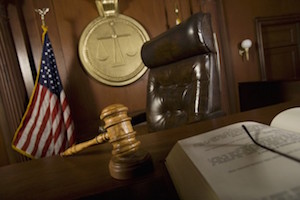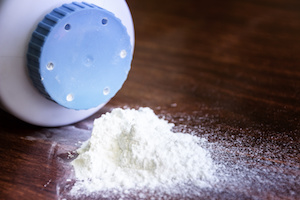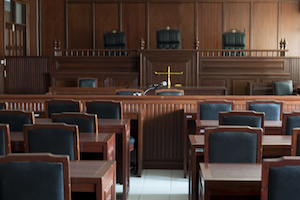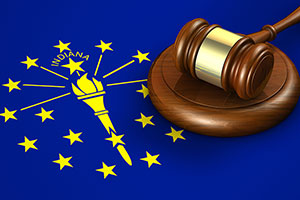The government, with its vast resources, has a distinct advantage when it brings criminal charges against all but the wealthiest defendants. Since poor defendants have the same right to a fair trial as wealthy defendants, the Supreme Court has held that the constitutional right to equal protection of the law demands that defendants not be placed at an unfair advantage simply because they are indigent.
It has long been the law that indigent defendants are entitled to appointed counsel. Without a lawyer, a defendant is deprived of a fair opportunity to present a defense. It was not until 1985, however, that the Supreme Court decided that the right to “a fair opportunity to present a defense” will sometimes include the right to use government funds to hire an expert.
States with robust public defender systems routinely authorize the hiring of experts, although budget-conscious agencies do not always approve the funding a defendant would regard as ideal. When judges are asked to authorize funding, however, defendants all too often encounter judicial reticence to use the government’s money to pay for expert witnesses.
Prosecutors, of course, might also be constrained by budgets, but they are not required to ask tight-fisted judges to approve the funding of expert witnesses. In addition, many prosecution experts work for government crime labs or law enforcement agencies, so it costs the prosecution nothing to call the experts to testify at trial.
Defendants, on the other hand, frequently struggle for approval of funding by judges who act as if they were paying for experts out of their own pockets. The Michigan Court of Appeals recently decided that a defendant was denied a fair trial because the court declined to approve funding for necessary expert witnesses. The appellate court blamed defense counsel rather than the trial judge, but the court’s circular reasoning allowed it to rectify an injustice.
Facts of the Case
Shawn Brown was convicted of manslaughter and child abuse in a Michigan court. Brown told the police that when his son started choking, he patted his son on his back, then patted him harder. When his son stopped breathing, he took his son to the hospital.
Brown’s son died. At Brown’s trial, a forensic pathologist testified that a traumatic brain injury caused his death. The pathologist couldn’t explain quite how that happened, but she viewed bleeding in the back of the child’s eye as evidence of a traumatic brain injury. Other doctors testified about visible injuries, including subdural hematomas and lung injuries, that they viewed as “consistent with” abuse and nonaccidental death.
The pathologist testified that all of the child’s injuries resulted from impact and that shaking was a potential mechanism for the injuries. She also testified that she might describe the cause of death as “Shaken-Impact Syndrome.”
After Brown was convicted, he moved for a new trial based on ineffective assistance of counsel. The court denied the motion without bothering to hold a hearing. Brown appealed and the Court of Appeals ordered the trial judge to hold a hearing. Predictably, the court held the hearing and again denied the motion. Brown then asked the Court of Appeals for relief, based in part on the trial court’s failure to approve funds for an expert witness.
Michigan Law Regarding Expert Witness Funding
Prior to 2018, Michigan courts viewed requests for expert witness funding through the lens of a statute that authorizes courts to issue subpoenas for indigent defendants in the same way that subpoenas are issued for prosecutors. In other words, service fees and witness attendance fees are paid by the state.
While the legislature clearly did not have expert witnesses in mind when it enacted the statute, courts relied on a strained reading of the statute to authorize payment of expert witness fees if the defendant could demonstrate that expert testimony would probably be helpful. Of course, it is often impossible to predict whether an expert’s testimony will be helpful until an expert has been hired, has analyzed the facts, and has arrived at an opinion.
The Michigan statute provided no authority for public funding of experts to assist defendants in trial preparation. Even if an expert’s testimony might not be helpful, an expert can provide invaluable assistance in helping defense counsel understand the prosecution’s expert evidence. Experts can explain weaknesses in methodologies that help lawyers develop effective strategies for cross-examining expert witnesses.
A 2018 decision of the Michigan Supreme Court overruled cases that relied on the statute and instead required trial courts to analyze requests for expert witness funding as an aspect of the constitutional right to a fair trial. According to the court, an indigent defendant “must show the trial court that there exists a reasonable probability both that an expert would be of assistance to the defense and that denial of expert assistance would result in a fundamentally unfair trial.”
That standard does not address the equal protection problem, because wealthy defendants can hire experts based on the possibility that they might find something to assist the defense, while indigent defendants must establish a “reasonable probability” that they will do so. The court’s suggestion that the standard might allow unfair trials, provided that they are not “fundamentally” unfair, is consistent with longstanding judicial tolerance of a system that is less fair to poor defendants than it is to wealthy defendants.
The United States Supreme Court has never held that every defendant has a right to receive the best possible defense. The Court has often suggested that defendants have no right to “a perfect trial,” a sarcastic axiom that lower courts have seized upon to excuse serious denials of constitutional rights. Rather, the Court has held that indigent defendants are only entitled to a fair trial. At the same time, the Court has recognized that the right to a fair trial should not be burdened by an indigent defendant’s lack of resources to hire necessary experts.
A Better Rule
The standard Michigan adopted in 2018 tracks the prevailing federal standard. Courts continue to struggle to decide whether an expert would probably be “of assistance” to the defense and whether the absence of expert assistance could deprive the defendant of a “fundamentally” fair trial.
A simpler rule that is more consistent with a commonsense understanding of due process would permit the defense to hire an expert whenever the prosecution intends to use an expert. Lawyers, after all, are experts only in the law. If the prosecution needs an expert to present its case, defense lawyers have an equal need for experts to help them prepare to meet the prosecution’s expert testimony.
When the prosecution does not plan to call an expert, the defense should be entitled to public funding of an expert when the expert’s scientific analysis of evidence would help the lawyer understand that evidence. Courts should also fund expert testimony whenever expert testimony would be admissible. For example, courts in recent years have recognized the importance of expert testimony to expose the unreliability of eyewitness testimony and to explain how suggestive questioning causes children to fabricate allegations of sexual assault. Approval of expert witness funding in cases involving eyewitness or child testimony should be virtually automatic.
Appellate Court’s Ruling
The Michigan rule is imperfect, if only because it contributes to imperfect trials by authorizing the denial of public funding for expert witnesses who could improve a defendant’s opportunity to receive a fair trial. Still, the Court of Appeals recognized that the trial courts must apply the rule in a meaningful way.
The Court of Appeals excused the trial court’s initial denial of funding because defense counsel advised the court only that he need an expert to help him evaluate the pathologist’s opinion that “unexplained injuries” and the nature of the victim’s head trauma were indicative of child abuse. The court upheld the trial court’s denial of funding because defense counsel failed to make a “detailed” showing that the proposed expert would probably have been helpful to the defense.
The defense lawyer’s explanation that he needed an expert’s help to understand the technical medical opinions upon which the pathologist’s opinion was based should have been enough, in a fair world, to persuade the trial court to fund the expert. How much detail is required for a lawyer to explain “I’m not a doctor and I don’t understand the medical evidence”?
Having let the court off the hook, the Court of Appeals then asked whether the defense lawyer failed to provide effective assistance of counsel because he did not explain the need for an expert in more detail. Appellate judges are often more comfortable blaming lawyers than other judges when defendants are denied a fair trial. In the end, no matter how blame is apportioned, the question is whether the denial of funding for an expert witness renders a trial unfair.
The Court of Appeals decided that defense counsel should have consulted with an expert to obtain evidence that expert testimony would have assisted the defense. The court concluded that counsel was ineffective for failing to do so. Yet counsel testified that he needed funds to hire an expert to consult with him and that the trial court refused to provide that funding. The appellate court put the cart before the horse by blaming counsel for failing to hire an expert to persuade the trial court to allocate the funds he would need to hire the expert.
New Trial Ordered
Justice was nevertheless done, albeit belatedly. The court noted that the “prosecution presented eight medical experts most of whom presented testimony that was heavily laden with medical terminology and complex medical processes.” Counsel’s cross-examination revealed that he did not understand their testimony.
The court then cited testimony from a 2018 hearing at which Brown presented expert evidence (presumably funded by the Michigan Innocence Clinic at the University of Michigan, which handled the most recent postconviction proceedings). Dr. Mark Shuman averred that Brown’s child had likely been injured a week before he died and that his injury on the date of death caused the earlier injury to re-bleed. Dr. Shuman also averred that it was impossible to know whether the combined injuries were intentional or accidental.
Brown also relied on the expertise of Dr. Joseph Scheller. Dr. Scheller testified that Brown’s son had a chronic subdural hematoma that spontaneously re-bled, causing his death.
The Court of Appeals concluded that the two doctors could have helped Brown’s counsel prepare for trial. Their testimony would also have given the jury another way to view the evidence, a way that was consistent with Brown’s innocence. Although the court deemed counsel to be ineffective for failing to present that evidence in his original request for funding, the court did not explain how Brown could have been expected to obtain that information from two notable experts without paying them for their time.
The Court of Appeals also refused to accept the prosecution’s assertion that a “consensus” of opinion demonstrates “that there is no controversy concerning the medical validity of the existence of shaken baby syndrome or abusive head trauma.” The court concluded that the “consensus statement” is “informative” but “not dispositive.” Only in a footnote did the court call attention to evidence that the “consensus statement” is a sham designed to keep falsely convicted defendants from relying on expert testimony that debunks conventional wisdom about shaken baby syndrome — a syndrome that careful researchers now regard as nonexistent.













